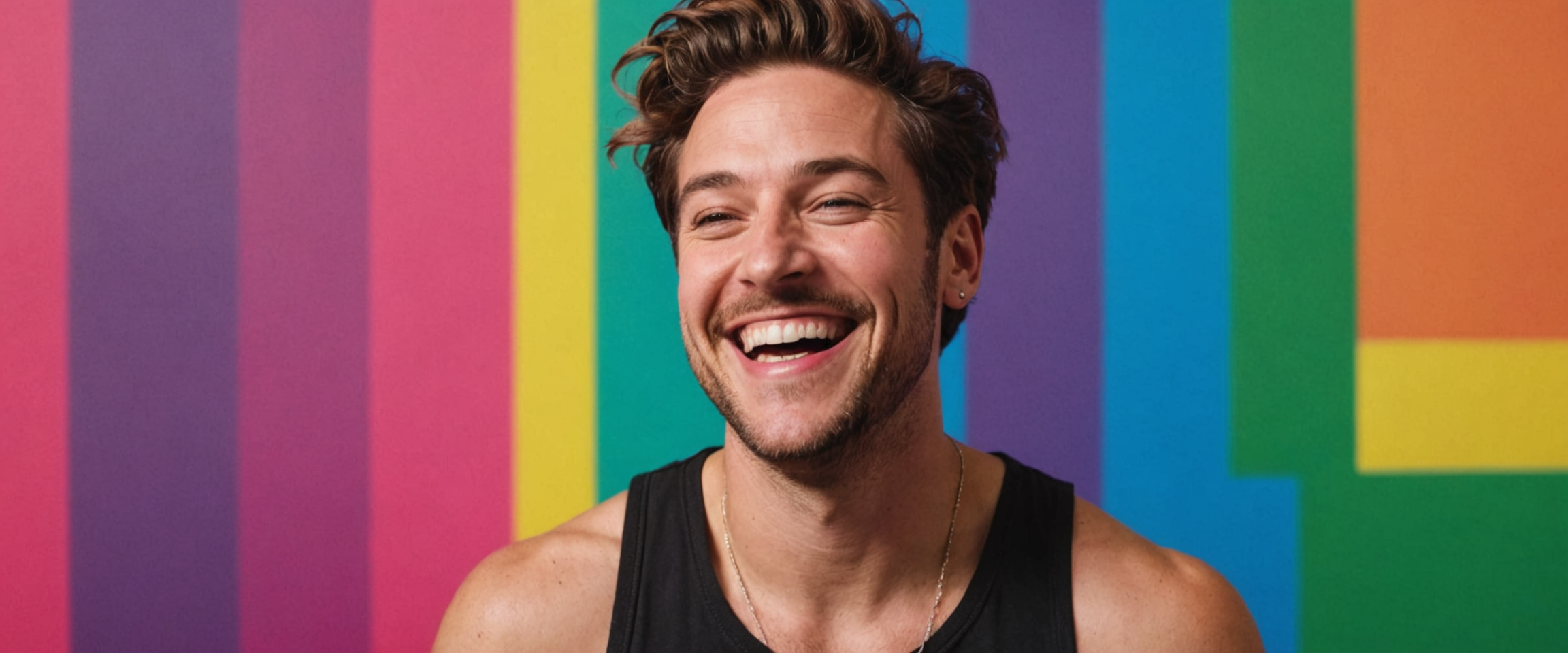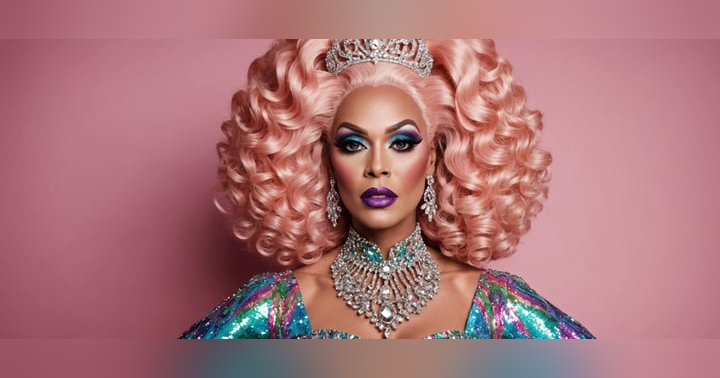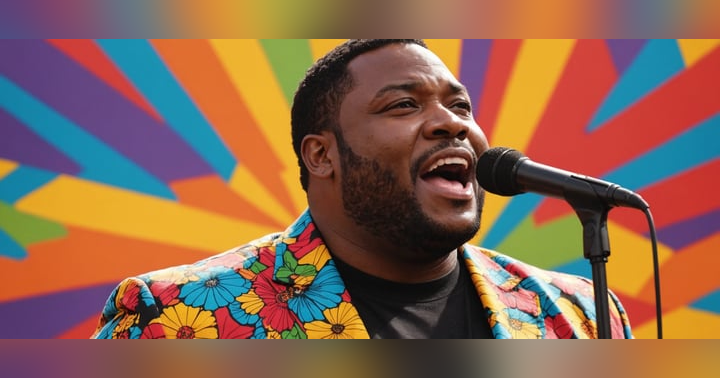Laugh Out Loud: The Defiant Legacy of Queer Comedy

“Laughter Unburdens Shame”
Queer humor has always been more than entertainment—it’s a cultural lifeline. For generations, the LGBTQ+ community has used comedy as both a mirror and a megaphone to reflect lived experiences, overcome adversity, and carve out joy in spaces where it was often denied. From early coded camp to today's uncensored punchlines, queer comedy has long translated pain into performance and marginalization into meaning.
At the heart of this tradition is New York-based comedian and storyteller Michael John Ciszewski, whose work exemplifies how humor can translate into activism. Having used comedy to navigate identity from an early age, Michael reclaims those narratives in solo shows like If Memory Serves, inviting audiences into a space of honesty, satire, and connection. “There are tools that I can use to sort of Trojan horse who I am into the world,” he explains—a strategy that resonates across generations of queer artists who have wielded wit as both armor and invitation.
Camp, Comedy, and Cultural Rebellion
Television staples like Will & Grace and Sex and the City offered early glimpses of queerness in pop culture, often through characters that leaned into stereotypes, yet still disrupted expectations. Their flamboyance wasn’t just comic relief; it was subversion. Jack McFarland and Stanford Blatch may have been caricatured, but they took up space, laughed loudly, and modeled visibility in an era when being out was still dangerous.
These portrayals influenced a generation of queer performers who saw comedy as a means of achieving freedom. “Laughter unburdens shame, and shame is the very thing that sort of holds us as people back. Shame is darkness, laughter is light,” says Michael. His words speak to a deeper truth: queer comedy isn’t just about jokes, but about liberation.
A New Era of Queer Storytelling
Queer comedy today is bolder, weirder, and more expansive than ever. It’s unafraid to center identity or not. “We are finally in a space now where queer comedians don’t have to make work about their identity. We can if we choose to,” Michael notes. That choice is crucial, and it reflects the evolving autonomy of queer creatives.
This new wave spans the surreal visuals of Julio Torres, the sharp storytelling of Matteo Lane, and the theatrical chaos of Cole Escola. Iconic predecessors like Alan Cumming and Billy Eichner helped forge the path, while current voices like Bowen Yang, Matt Rogers, Jay Jurden, and Jesse L. Jean continue to push boundaries with authenticity and flair.
What unites this eclectic mix is a shared refusal to be reduced to a single narrative. Through humor, they explore the intersections of identity, trauma, sex, joy, politics, and everything in between, reminding audiences that queerness contains multitudes.
The Complexity of Representation
With increased visibility comes a complicated tension: representation can feel like both a gift and a burden. Queer comedians often face pressure to speak for an entire community, a task no one voice can fulfill. The demand to be “gay enough” or “not too gay” mirrors challenges seen across public life, from Pete Buttigieg’s candidacy to television’s few queer leads.
“I can only really write from my experience… comedy is at its best and we are at our funniest when we are being most honest,” Michael says. His perspective is a necessary reminder that authenticity should outweigh expectations. The strength of queer comedy lies in its honesty, not its universality.
Criticism within the community often stems from care, such as calls for deeper, more nuanced portrayals, but honoring diversity means making room for many kinds of stories, not one definitive script.
Queer Joy in a Political Landscape
In a time when LGBTQ+ rights are under renewed threat and Pride Month is increasingly commodified, queer comedy does more than entertain—it holds the line. “Comedy this June is an essential space for release for us,” says Michael. “I think that it’s really important that we center queer joy, and if that is something that we can do with comedy, then we must because it is otherwise incredibly difficult.”
Humor becomes resistance. A joke about a hookup becomes a declaration of self. A punchline about shame becomes an act of collective healing. Even in mainstream venues, many queer comedians embrace a strategy of embedding radical truths within accessible formats; a Trojan horse approach that blends entertainment with education, visibility with disruption.
This kind of code-switching—shaping content for different audiences without compromising core values—isn't new. It's a creative survival skill repurposed for political urgency. And it ensures that queer voices remain in the conversation, even when the cultural climate grows hostile.
Building Something Bigger: Comedy as Collective Action
Queer comedy’s most powerful evolution may be its shift from an individual platform to a collective movement. Across major cities, queer comedy nights, collectives, and shows offer performers the freedom to be experimental, political, and unapologetically queer.
“What excites me most about queer comedy is that it only makes the tent bigger and more inclusive for people like us to exist,” says Michael. That tent, made possible through collaboration, mutual support, and creative risk, has room for wild absurdism, sharp critique, and deeply personal storytelling.
From grassroots stages to podcast powerhouses like Las Culturistas, and from indie shows like Oh, Mary! to streaming specials, queer creatives are not just telling stories—they’re reshaping the culture around who gets to tell them, and how.
Humor as Survival, Humor as Superpower
At its heart, queer comedy is about articulation: telling stories in ways that cut through noise, rewrite norms, and reclaim space. “Don’t compromise on your articulation. As queer people, it is our superpower to articulate our narratives, because that’s how we made ourselves,” says Michael.
This act of self-making, through laughter, performance, or even a snarky TikTok, is transformative. Comedy doesn’t erase pain, but it reframes it. It creates community. It demands to be seen.
For anyone stepping into this world, Michael offers a path forward: borrow, mimic, and evolve. “Find what you love, imitate it, and then reshape it into something uniquely your own.”
The Power of Queer Comedy: Joy as Resistance
In moments of uncertainty, when fear and anxiety threaten to cloud clarity and hope, queer comedy serves as a vital lifeline. It creates a space where laughter becomes both a coping mechanism and a catalyst for change, reminding queer people that they’re not alone, that their experiences are seen, and that their voices matter.
As queer comedy has evolved from coded camp and stereotype to layered, authentic storytelling, it has also grown in impact. Comedy that once had to rely on subtext now boldly confronts oppression, celebrates identity, and challenges the limits of mainstream narratives. What may seem frivolous on the surface is often deeply intentional beneath it. These jokes, characters, and cultural critiques aren’t just for entertainment but serve as tools of survival and protest, forging visibility where silence once stood.
Queer humor builds a world where joy is not only possible but necessary. It reframes pain without erasing it and pushes back against marginalization by declaring, with a smirk and a punchline, that queer people are here and they’re not going anywhere. Through storytelling, satire, and community, queer comedy doesn’t just make us laugh, but also brings us closer to ourselves, to one another, and to a future where joy and justice can coexist.
And remember: every day is all we have, so you've got to make your own happiness.
For more information on this topic, listen to Episode 156. Punchlines and Pride: Activism Through Queer Comedy (with Michael John Ciszewski).
Tune into your favorite podcast player every Tuesday for new episodes of A Jaded Gay.


















